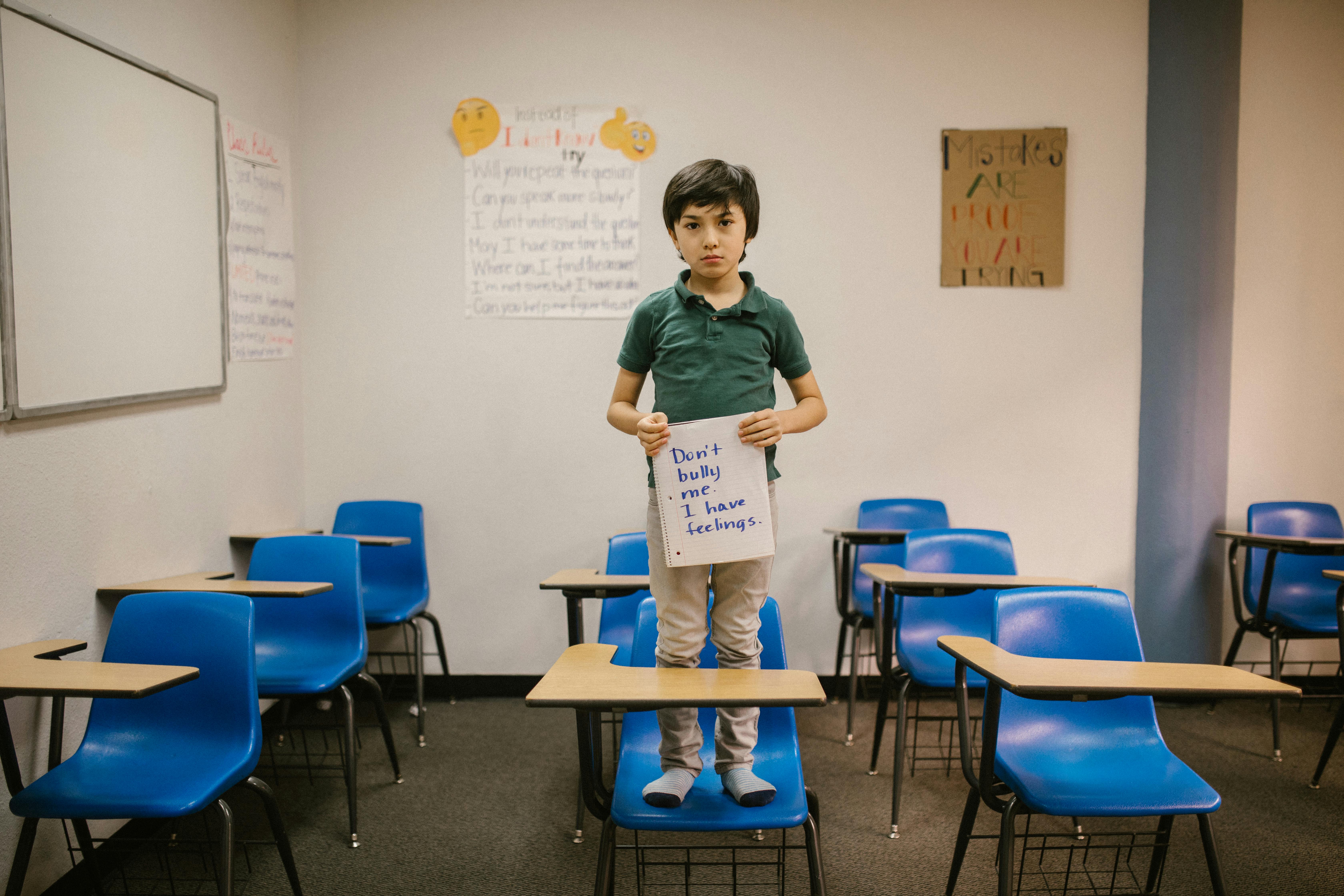
Raising Resilient Kids; Every child will face challenges, whether dealing with rejection, navigating friendships, facing peer pressure, or struggling in school. But they all react differently. Some children overcome these challenges and bounce back stronger. On the other hand, some children feel stuck and overwhelmed by them.
What is the difference between these two categories of children? The answer lies in resilience—the ability to adapt, recover, and grow from setbacks.
Take, for example, Akeelah Anderson in the movie Akeelah and the Bee. Akeelah Anderson didn’t have an easy road to success. She grew up in a low-income neighborhood in South Los Angeles and faced challenges that could sway her from pursuing her dreams. Her limited environment, self-doubt, and peer pressure overshadowed her natural gift and flair for spelling. Even when, against all odds, she mustered the courage to compete in spelling bees, she encountered obstacles that put her back against the wall.
But guess what? Even when all roads signaled that she should throw in the towel, she didn’t give up. In due time, she met a mentor who supported her. Also, her determination and community helped her push through every obstacle. With her resilient attitude and mindset, she became a finalist at the Scripps National Spelling Bee.
This story is a powerful example of resilience. Resilience is not about avoiding failure but learning to navigate through it. Just like Akeelah, every child faces challenges. These could range from academic struggles to social pressures and emotional setbacks. How they respond to these challenges shapes their confidence, mental well-being, and future success.
Having learned of the importance, how can you help your child develop resilience? How do you raise resilient kids? This guide will examine 6 ways to help children cope with challenges and bounce back from setbacks.
1. Teach them Emotional Awareness and Regulation:
Before your children can manage or regulate their emotions, they need to recognize and understand them. Here are some of the ways to teach your children how to do that:
A. Label emotions:
Encourage your children to express how they feel in words. Instead of saying, “I’m mad,” they can learn to say, “I feel angry because I didn’t do well on my test.” Expressing their feelings in words helps them to label their emotions and how they feel.”
B. Normalize emotions:
Let your children know that positive and negative emotions are normal. We all feel these different emotions at one time or another. One way I like to explain it is that positive emotions make you feel good, and negative emotions signal that something is wrong or worth paying attention to. Explain to them that emotions don’t control them. They can be emotionally intelligent.
C. Teach calming techniques:
Encourage your children to practice exercises like deep breathing and counting to ten to calm their nerves and regulate their emotions.
2. Foster a Growth Mindset:
Fostering a growth mindset is one of the ways in raising resilient kids and helping children cope with challenges. Simply put, children with a growth mindset believe abilities and intelligence can improve with effort. So, even when they fail, they know it’s a matter of knowing the right information and putting in the right amount of effort to attain success. Use the following to foster a growth mindset:
A. Praise effort, not just outcomes:
Instead of saying, “You’re so smart,” say “I love how hard you worked on that project.” When you tell a child, “You’re so smart,” they may internalize intelligence as a fixed trait. If they later struggle, they might think, “Maybe I’m not actually smart.” This can discourage them from taking on challenges for fear of failure. But when you say, “I love how hard you worked on that project,” you emphasize effort as the key factor in success. If they fail, they are more likely to think, “I need to work harder or try a different approach,” rather than doubting their intelligence.
B. Reframe failures:
Teach your kids not to allow their failures to define them. Teach them to see their setbacks as feedback and opportunities to learn. I remember attending a conference three years ago, where John C. Maxwell was the keynote speaker. At that conference, he emphasized that you can’t separate failure from success. They are two sides of the same coin.
Many successful people have failed more times than they have succeeded. They learned to see failures differently. A successful Nigerian entrepreneur, Paul Onwuanibe, founded Landmark Beach Resort in Oniru, Lagos. But in April 2024, the government ordered the demolition of the resort. Now, Here’s the interesting part… Despite losing over $30 million, he decided to accept the loss, learn from his failures, rebuild, and move forward rather than dwell on the setback.
Recently, he expressed his determination to rebuild a bigger and better version of the Beach Resort in Enugu State. Even though he lost a significant sum, he reframed his failure and decided to start again. You can teach your children to start looking at life from this perspective.
C. Model perseverance:
Children don’t just learn from what you say: they also learn from what you do. It’s not enough to teach or tell them what to do, you have to lead by example. Let them see you working through challenges instead of giving up. Show them what it means not to give up. If your children see you becoming overwhelmed by stress, they will most likely do the same when faced with that situation. Stay calm under pressure and demonstrate positive coping mechanisms.
3. Encourage Problem-Solving Skills:(Raising Resilient Kids)
A good friend of mine will always say, “Everything is figureoutable.” Because there is a roadblock doesn’t mean that there is no solution. Encourage your children to think about challenges critically and find solutions to them. To develop your children’s critical and problem-solving skills, try the following:
A. Ask guiding questions:
Instead of providing answers, ask, “What do you think you can do about this?” This will change their disposition from relying on you to finding the answers they need themselves. They will put on their thinking caps and look for a solution.
B. Encourage independent thinking:
While being a helpful parent is good, sometimes, let your children think and solve their problems. For example, your child’s toys will most likely develop faults. When that happens, you might want to fix it. But why not ask them, “What can you do to fix this?”
4. Build Strong Social Connections:
While your children should be independent, supportive relationships will help them during difficult times. It’s being said that humans are more prone to get depressed and anxious when they are isolated from people. If you are going to raise resilient kids, then you should help them see why they should have supportive relationships. Here are some ways to do that:
A. Encourage friendships:
Regardless of your child’s temperament, encourage your child to have friends—good friends, of course. Teach your child to network, connect, and build meaningful relationships with friends.
B. Teach empathy and communication skills:
Show your children how to listen to their friends and express themselves when talking. Also, there is no relationship without conflicts. Teach them how to work through their disputes.
C. Provide a safe and supportive environment:
Sometimes, your children don’t open up to you because they don’t feel safe with you. They open up to people who make them feel heard, understood, seen, and valued. Anywhere they feel heard is home to them. You want to ensure that it is your home. For example, if your child is bullied in school, don’t tell them to ignore it. Listen to them and help them develop assertive responses to stop the bully. If it persists, you should draw the attention of their class teacher to it.
5. Teach Coping Strategies for Stress and Anxiety:
Many adults have yet to grasp the importance of managing stress. Instead, they let stress overwhelm them and either burn out or break down. You should teach your children how to manage stress. It will help them in times of adversity. Even when faced with challenges, they will use these strategies to cope. Here are some coping strategies for Stress and Anxiety.
A. Mindfulness and relaxation techniques:
Deep breathing, visualization, yoga, dance lessons, and exercise are some mindfulness and relaxation strategies for relieving stress.
B. Encourage healthy outlets:
Your child can process their emotions through sports, music, or journaling. For example, if your child is overwhelmed before a big exam, they can listen to cool music to calm their nerves.
6. Teach Optimism and Positive Thinking:
Tony Robbins once said, “Energy flows where attention goes.” As you already know, what you focus on expands. If you focus on the problem, it will be amplified. Likewise, if you focus on the solution, it will be at the center too. To raise resilient kids, you should teach your child to focus on solutions rather than problems.
A. Help them reframe negative thoughts:
Instead of “I can’t do this,” encourage them to say, “I’ll give it my best shot.” I mean, there is no harm in trying. Nobody is saying they shouldn’t try, so why not give it your best shot while at it?
B. Practice gratitude:
Encourage them to keep a journal of things for which they are grateful for. This will shift their perspectives from the seemingly challenging situations to what they have done. Regardless of the problem, there is something to be grateful for. Encourage them to do this daily, and you will see yourself raising vibrant and resilient children.
C. Show the silver lining:
Teach them to find positives in difficult situations. For example, suppose a soccer game is canceled because of rain. Instead of sulking about it, they can see it as an opportunity to participate in a fun indoor activity or family time. There is always the positive in the bad.
Conclusion(Raising Resilient Kids)
Resilience is one of the greatest gifts we can give our children. By raising resilient kids, we prepare them for life’s inevitable ups and downs. Implementing these strategies will help children cope with challenges and bounce back from setbacks. They will grow into strong, adaptable individuals who can face difficulties head-on and emerge even stronger. Did you get value in this article? Share it with other parents so they can learn too.




Add comment